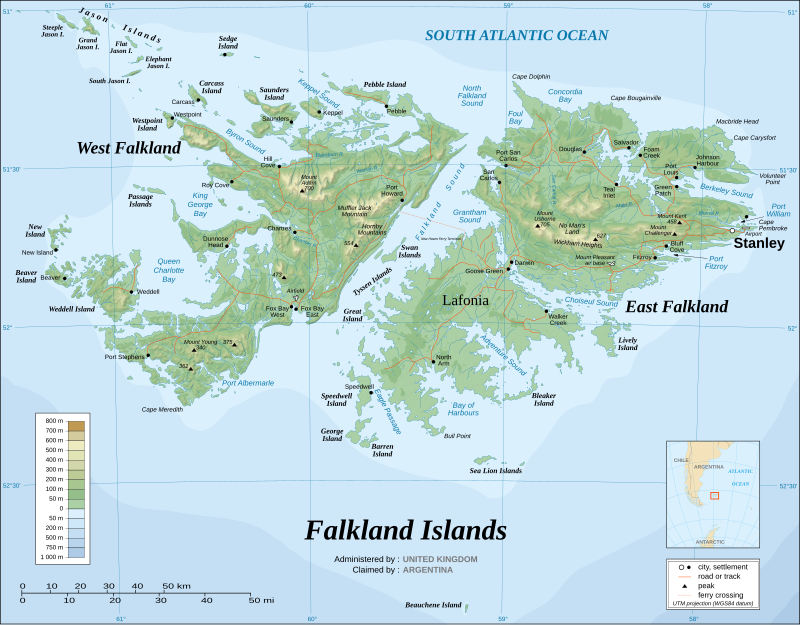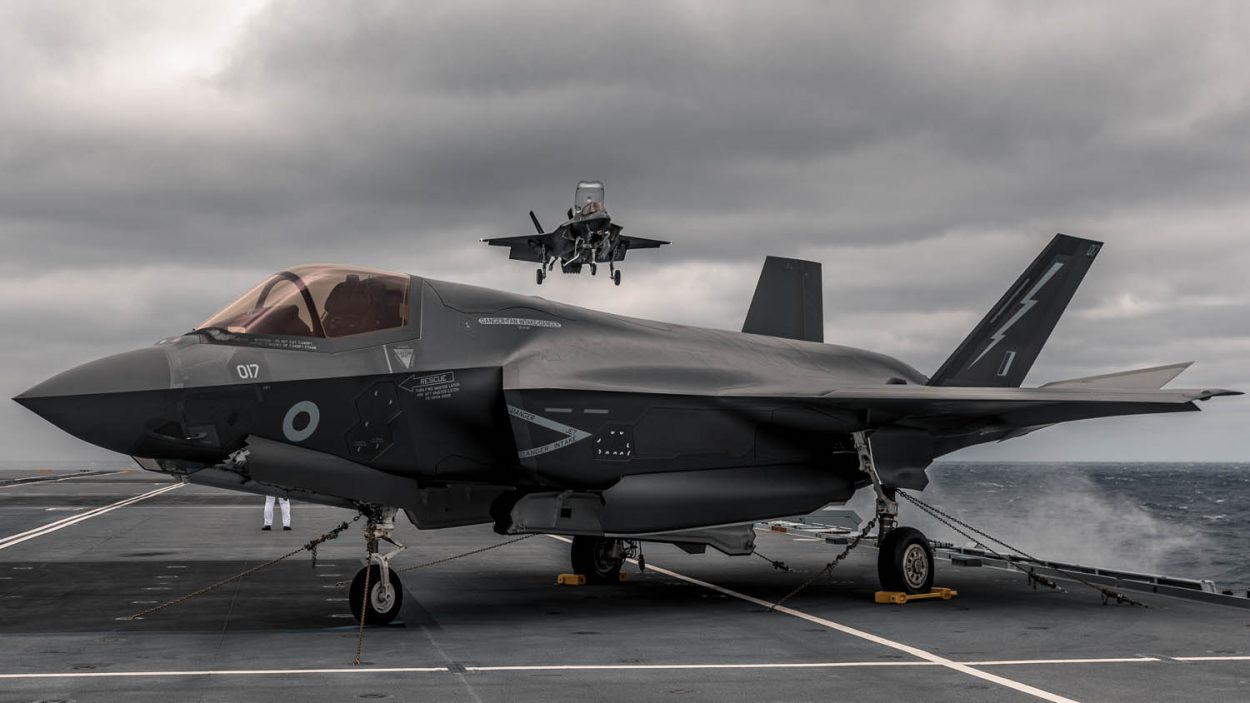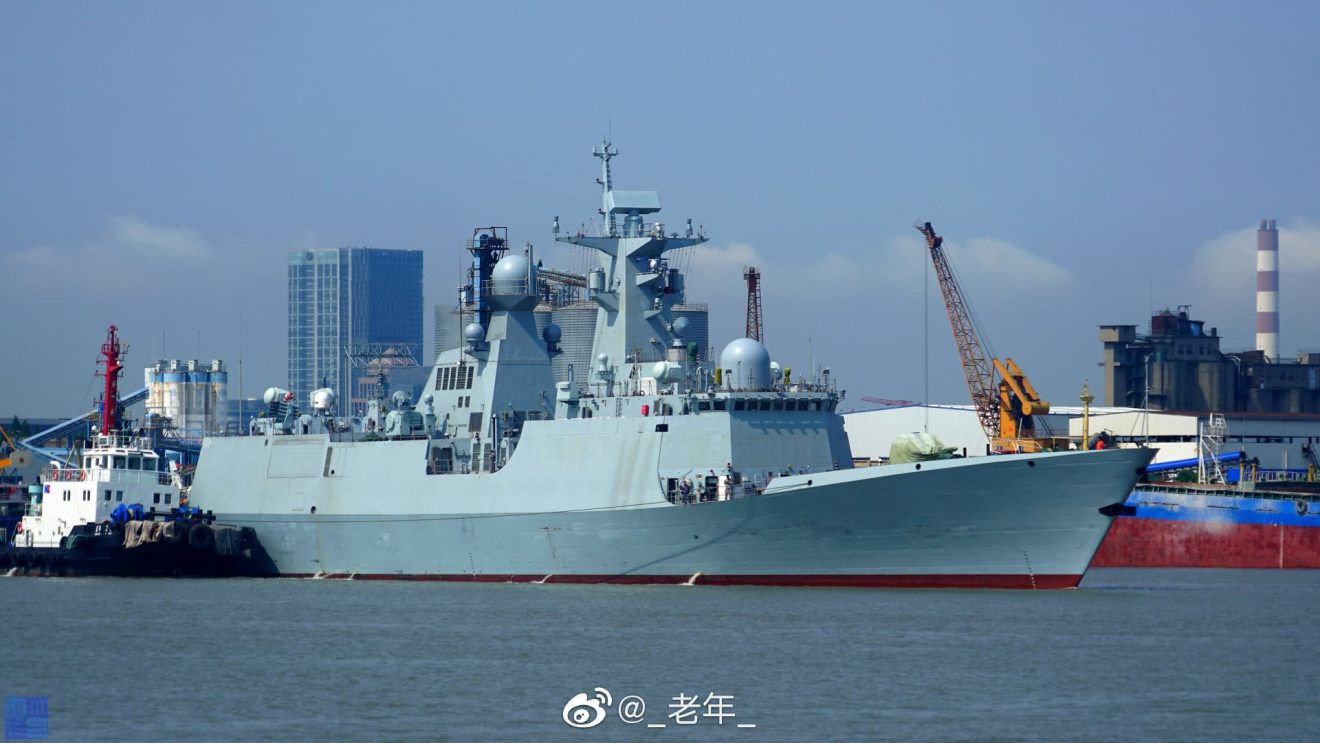With China trying to boost its presence in South America, Argentina has emerged as a valuable partner for Beijing. In a recent development, Argentine President Alberto Fernandez laid a wreath on the mausoleum of former Chairman of the Communist Party, Mao Zedong.
In America’s Backyard, China To Set Up A Massive Nuclear Power Plant Using Its Indigenous ‘Hualong One’ Tech
The deepening association between China and Argentina, which is participating in the ongoing Beijing Winter Olympics, is not free of controversy though.
In a move that has angered London, the Chinese embassy in the United Kingdom stated that Beijing’s position on the Malvinas (Falkland) Islands problem is consistent and that it strongly supports Argentina’s rightful claim to complete sovereignty over the islands, Global Times reported.

Malvinas Islands is the Spanish name of the Falkland Islands that are controlled and administered by the British.
The Chinese embassy’s spokesperson made the remarks, which were published on the embassy’s website on February 8. The remarks came after UK Foreign Secretary Liz Truss said on Twitter that China must respect the sovereignty of the Malvinas Islands, which she considers to be “part of the British Family.”
#China reaffirms its support for #Argentina's demand for the full exercise of sovereignty over the #Malvinas Islands and its support for an early resumption of negotiations in accordance with relevant United Nations resolutions for a peaceful settlement of the dispute.
— 曹 毅 CAO Yi أبو وسيم (@CaoYi_MFA) February 7, 2022
After Argentina’s President Alberto Fernández met China’s President Xi on the fringes of the Beijing Winter Olympics, the foreign secretary stated that “China must respect the sovereignty of the Falklands”.
According to a statement on the Chinese embassy, the two leaders spoke of their “deep friendship,” and Argentina joined China’s Belt and Road Initiative, a state-backed effort for global influence, stated The Guardian.
They did, however, also sign an agreement in which China reaffirmed its support for Argentina’s Falkland Islands claim, while Fernández endorsed Xi’s one-China policy, which claims Taiwan as a part of the mainland. The statement said Argentina should be able to “fully exercise its sovereignty over the Malvinas (Falklands) Islands issue”.
We completely reject any questions over sovereignty of the Falklands.
The Falklands are part of the British family and we will defend their right to self determination.
China must respect the Falklands' sovereignty ????
— Liz Truss (@trussliz) February 6, 2022
But Truss said: “We completely reject any questions over sovereignty of the Falklands. The Falklands are part of the British family and we will defend their right to self-determination. China must respect the Falklands’ sovereignty.”
Even though this has triggered a diplomatic row between the two countries that already remain embroiled in tensions on various issues, this is not the first time when China has backed Argentina’s claim over the islands.
In June of last year, a Chinese envoy had called for worldwide efforts to abolish colonialism and outlined China’s position on the Malvinas Islands.
El Representante Permanente Adjunto de China ante las Naciones Unidas, Geng Shuang, pronunció un discurso sobre Malvinas en el Comité Especial de Descolonización de la ONU. Apoyó firmemente el legítimo reclamo de Argentina sobre la soberanía de las islas.https://t.co/M2PfZKbci3
— Daniel Filmus (@FilmusDaniel) June 29, 2021
Beijing-London relations have deteriorated considerably in recent years, with the two nations battling over trade, Hong Kong, and human rights. It is ironic though that China which asserts its sovereignty over the self-governing island of Taiwan does not endorse UK’s control over the Falkland Islands.
Beijing’s stand could be seen as a message to the West. Several western countries support Taiwan’s democracy and independence and oppose the Chinese belligerence and pressure tactics over Taipei.
Hundreds of Argentine troops landed in the Falkland Islands, also known as the Islas Malvinas in Argentina, on April 2, 1982.
The islands were a British overseas territory located 400 miles east of Argentina and 8,000 miles south of the United Kingdom. The islands were the subject of a long-running dispute between Britain and Argentina, despite their modest size and limited population.
After numerous heavy firefights, the small British garrison surrendered on April 2 in the afternoon. It was a much-needed success for Argentina’s military junta, which intended to divert attention away from its brutal rule and other domestic concerns.

The junta assumed that Britain, which was dealing with its own domestic difficulties, would not strike back from afar. However, Britain dispatched 15,000 men to retake the islands over the next 74 days, aboard warships, logistical ships, and even cruise liners.
After failed discussions over control of the islands, the conflict began in earnest on May 1, 1982. Argentine planes fired the first shots in the air, seeking to intercept a Royal Navy task force dispatched to prepare the area for the invasion force.

However, the British military was able to steadily advance and gain an advantage with each passing day with its superior air and naval power. Finally, on June 14, the Argentines, surrounded by all sides, surrendered.
Although China’s military was not involved in the Falklands conflict in any manner, its analysts have studied it extensively, owing to the many parallels that may be found in a conflict over Taiwan, according to a previous article of Business Insider.
Why China Cares About Falklands
Argentine President Fernández has improved his country’s ties with China, which surpassed Brazil as Argentina’s top trading partner in 2020. Bilateral trade increased by 56 percent from 2007 to 2019, reaching $15 billion. Argentina joined the Asian Infrastructure Investment Bank in March 2021, and now finally, it has formally joined China’s BRI.
Argentina has formally joined the Belt and Road initiative.
— 曹 毅 CAO Yi أبو وسيم (@CaoYi_MFA) February 6, 2022
As China aims to expand beyond its immediate region of influence and forge economic relations with South American countries, its support to their stated territorial position is expected to deepen the partnership between them to China’s benefit. It has been interpreted as a plan to occupy space in a region that the United States has traditionally treated as its own backyard.
Further, Beijing has repeatedly chastised Britain’s “colonial mindset” in relation to the Falkland Islands, which overwhelmingly opted to remain a British overseas territory in a plebiscite in 2013.
Last June, China’s deputy permanent representative to the United Nations, Geng Shuang, spoke on decolonization and advocated for the abolition of all forms of colonialism. Argentina attempted to begin negotiations with the United Kingdom regarding the sovereignty of the islands during the same session.

“But it’s OK for the UK to question China’s sovereignty in the South China Sea by sending navy vessels?” Chen Weihua, a journalist for China Daily, an English-language publication owned by the Chinese Communist Party, said in response to Britain’s outrage against the Chinese-Argentine statement. “At the very least, China has not sent its navy to the Malvinas, or the Falkland Islands.”
Recently, China also reaffirmed its support and friendship with Russia. In a joint statement with Russia, it called on the West to “abandon the ideological approaches of the Cold War” as the Russian build-up on the Ukrainian border remains at an all-time high.
The modus operandi has been the same. In the joint statement with Russia, China rebuked the US for encouraging protests in Hong Kong and indirectly supporting independence for Taiwan while Russia expressed its discomfort with NATO expansion.
With the Falkland issue, Beijing is probably doing a tit-for-tat with the West.
- Contact the author at sakshi.tiwari9555@gmail.com
- Follow EurAsian Times on Google News




